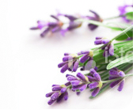Manuka (Leptospermum scoparium)
A native plant to New Zealand, Manuka is the Maori term and Common Name for Leptospermum scoparium. The plant is sometimes referred to as ‘Ti-Tree’ but is not to be confused with the Australian Tea Tree. The wild growing, small tree is harvested organically with the exclusion of fertilisers or any other artificial chemicals. Manuka Oil has been widely used for generations in New Zealand and is very effective against microorganisms such as Staphylococcus aureus.
Manuka Oil is obtained by steam distillation of the leaves and twigs of Leptospermum scoparium, a small bushy tree with small spiky leaves and pink flowers. The typical harvest period being between November and June (weather permitting).
Having found its way into many current day end applications, Manuka continues to be in short supply due to the lack of wild plants available to harvest in a terrain susceptible to heavy rains.
Traditional Uses
- Early settlers boiled leaves for cure and prevention of scurvy, they named this tree the ’tea tree’.
- Decoction of leaves taken for urinary and other internal complaints.
- White gum from the tree was applied to scalds and burns.
- Infusion of the bark was used as a sedative and for diarrhoea.
- Leaves boiled and vapour inhaled for colds.
- Leaves and bark are boiled and decoction used for various pains, such as a stiff back.
- Seed capsules boiled and fluid applied externally to reduce inflammation and for respiratory conditions.
- Seed poultice used to dry an open wound or running sore.
Therapeutic Essential Oil Uses
- Researchers in Germany are currently testing Manuka with asthma, anxiety, fear and nervousness.
- Ringworm, athletes foot.
- Powerful insecticide.
- Acne, skin eruptions, heals stubborn ulcers and wounds, cuts and abrasions.
- As a disinfectant it has been investigated under laboratory conditions against staphylococcus.
- Coughs, colds or flu.
- Coldsores, mouth ulcers.
- Muscle aches and pains, arthritis, sprains and stiffness.
- Fungal infections, bacterial infections and wound healing. Supporting the body in resisting infection or when the body is weakened by toxicity or environmental hazards.
- Strong natural anti-bacterial qualities similar to Australian Tea Tree.
- Can be used with all ages, from infant to elderly.



